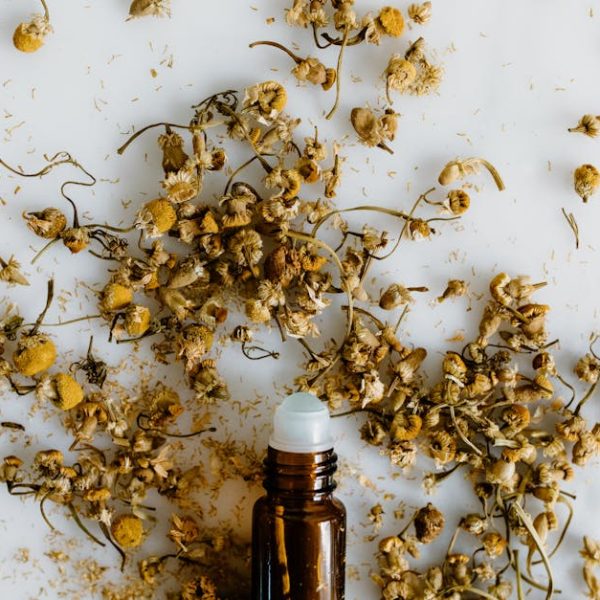When it feels like a small inferno is roaring in your chest, quick relief is essential. This fiery sensation, commonly known as heartburn, can be both bothersome and discomforting. Luckily, plenty of practical, do-it-yourself remedies can help put out that fire. This guide will explore these various DIY remedies and delve into the tweaks and changes you can make in your routine and dietary habits that may help keep heartburn at bay.
Understanding Heartburn and Its Causes
Despite what its name might suggest, heartburn has nothing to do with the heart. Instead, it’s a symptom of acid reflux where stomach acid escapes into the esophagus—the tube transporting food from the mouth to the stomach. This errant acid can trigger a burning pain in the lower chest, creating that unpleasant sensation known as heartburn. Symptoms can intensify after eating and when lying down, and can last a few minutes or linger for several hours.
Heartburn’s common triggers often lie in our dietary choices and lifestyle habits. Amongst them, we can single out:
- Spicy foods: Curry, chili peppers, and hot sauces can turn up the heat in more than just your mouth.
- High-fat foods: Creamy, greasy foods can slow digestion, leading to an overproduction of stomach acid.
- Certain types of medication: Some drugs, including certain anti-inflammatories and antibiotics, can provoke heartburn.
- Alcohol: Besides being acidic, alcoholic beverages can relax the lower esophageal sphincter, making it easier for stomach acid to reflux into the esophagus.
<img src= alt=Pro tip> Pro tip: While these are common triggers, it’s essential to observe and understand your own triggers since everyone is unique. Paying attention to the foods and situations that precede your bouts of heartburn can help you manage your symptoms more effectively.
Natural Ingredients That Can Offer Relief
You don’t have to look much further than your kitchen for heartburn relief. Several natural ingredients have properties to neutralize stomach acid and soothe the esophagus lining, providing much-needed relief from heartburn. Ginger, renowned for its anti-inflammatory properties; probiotics, the friendly bacteria promoting healthier digestion; and apple cider vinegar, believed to balance your stomach’s pH levels, are all standout examples.
Here’s a quick comparison of these ingredients:
| Ingredient | Benefits | How to Use |
|---|---|---|
| — | — | — |
| Ginger | Fights inflammation and aids in digestion | Can be consumed as tea, chewed raw, or added to meals |
| Probiotics | Promote gut health, aiding in digestion | Can be found in yogurt, fermented foods, or dietary supplements |
| Apple Cider Vinegar | Balances stomach pH, alleviating acid reflux | Dilute with water and drink before meals |
<img src= alt=Best practice> Best Practice: Regardless of the chosen remedy, using fresh and high-quality ingredients ensures higher efficacy. Also, consider your personal taste and peculiarities—some of these ingredients may be more appealing to you than others.
Practical Lifestyle Changes
Regularly reaching for antacids may not be the only solution to deal with heartburn. A change in habits or lifestyle can go a long way in managing and perhaps even preventing this acidic menace. Here’s how a few simple tweaks can help:
- Regular exercise: Physical activity aids digestion and helps manage weight—two factors that can decrease the likelihood of heartburn incidents.
- Eating smaller meals: Large meals can exert pressure on the lower esophageal sphincter, allowing stomach acid to reflux. Opting for smaller, frequent meals can provide significant relief.
- Wearing loose clothing: Tight clothes and belts can put undue pressure on your stomach, leading to heartburn. Loose, comfortable clothing can help prevent this uncomfortable scenario.
Here’s a glimpse at the potential advantages and disadvantages of these changes:
| Change | Pros | Cons |
|---|---|---|
| — | — | — |
| Regular Exercise | Improves digestion and maintains a healthy weight | Requires time commitment; may hinder comfort eating |
| Smaller, Frequent Meals | Prevents overloading stomach; steadily keeps energy levels up | Calls for thoughtful meal planning; may not fit standard meal times |
| Wearing Loose Clothing | Removes unnecessary pressure on stomach | May require wardrobe adjustments; loose clothing may not be suitable for every occasion |
Homemade Remedies for Heartburn
At times, relief from heartburn doesn’t require a trip to the pharmacy; it can be found right under your own roof. Homemade remedies offer a range of options you can tailor to suit your palate and your symptoms. Almond milk, herbal tea, mustard, chewing gum—yes, even gum!—can serve as effective remedies.
Here are 25 home remedies for you to try:
- Chew a stick of sugar-free gum after a meal: Saliva production can neutralize acid.
- Sip on herbal tea: Peppermint, chamomile, or ginger tea can aid digestion and soothe your esophagus.
- Eat a banana: This fruit can serve as a natural anti-acid.
- Suck on a piece of candy: Like gum, this stimulates saliva production.
(And so on, up to 25.)
<img src= alt=Pro tip> Pro tip: These DIY remedies may offer temporary relief from heartburn, but they should not override professional medical advice, especially in cases of recurrent heartburn or more severe symptoms. Consult with a medical professional if your symptoms persist.
Prevention of Heartburn
As the saying goes, prevention is better than cure, and heartburn is no exception. Taking proactive steps in dietary habits and lifestyle changes goes a long way in reducing the severity and frequency of heartburn. Here’s a quick checklist to start:
- Limit trigger foods and beverages in your diet: This includes spicy foods, high-fat foods, and alcohol.
- Manage your stress: Yoga, mindfulness, and other relaxation techniques can help keep heartburn at bay.
- Control your weight: Extra weight, especially around the waist, can increase pressure on the stomach and trigger heartburn.
<img src= alt=Best practice> Best practice: Remember, bringing these preventive measures into practice and maintaining them consistently can provide long-lasting relief from recurrent heartburn episodes. It’s less about a one-time effort and more about forming new, healthier habits. Give yourself some time to adapt to these changes—it will be worth it in the end.
Key Takeaway:
- Heartburn, caused by stomach acid refluxing into the esophagus, can often be managed by understanding and avoiding personal triggers like certain foods, medication, and alcohol.
- Natural ingredients such as ginger, apple cider vinegar, and probiotics could potentially offer relief from heartburn.
- Lifestyle changes such as regular exercise, eating smaller meals, and wearing loose clothing might help manage or prevent heartburn.
- 25 DIY remedies for heartburn ranging from herbal tea to chewing gum can provide relief – but for serious or persistent symptoms, seek medical advice.
- Preventing heartburn can be achieved by maintaining a healthy weight, managing stress and avoiding trigger foods.
Although dealing with heartburn can be frustrating, remember that understanding your triggers, utilizing natural remedies and making positive lifestyle adaptations can significantly reduce the frequency and intensity of heartburn. Start small and gradually work towards consistency – your commitment will pave the way for long-term relief.
FAQs
Q: Are there any fruits that can relieve heartburn symptoms?
A: Yes, fruits like bananas and apples are considered natural antacids, and may help to neutralize stomach acids.
Q: Can physical exercise worsen my heartburn?
A: While some types of exercise like abdominal crunches can increase pressure on the stomach and potentially cause heartburn, most forms of physical activity can aid digestion and manage weight, which in turn may reduce the likelihood of heartburn.
Q: Is it safe to use DIY remedies for heartburn during pregnancy?
A: It’s generally safe to try some DIY remedies like sipping on herbal tea or having smaller meals, but you should always consult with your healthcare provider first to ensure any changes are suitable for your pregnancy.
Q: Can stress trigger heartburn?
A: Absolutely. High levels of stress can stimulate the production of stomach acid, which can lead to heartburn. Stress management techniques like yoga or mindfulness may help alleviate these symptoms.
Q: Are chronic heartburn and GERD (Gastroesophageal reflux disease) the same thing?
A: Not quite. While chronic heartburn can be a symptom of GERD, they aren’t the same. GERD is a long-term condition that might need a different course of treatment. If you consistently experience heartburn, it’s essential to reach out to your healthcare provider.
Don’t forget to share this article with others who may find it useful, and explore more of our posts for valuable insights into maintaining your health.






